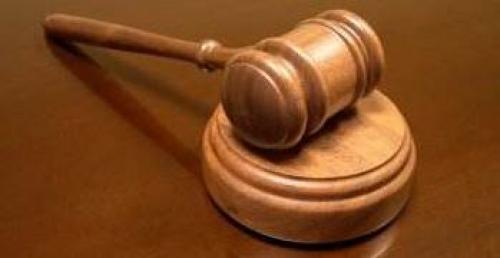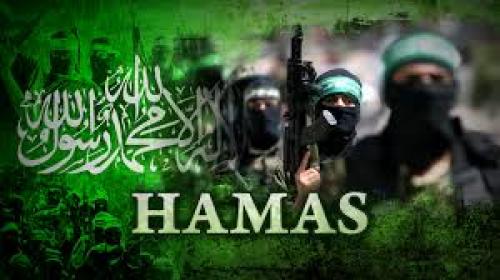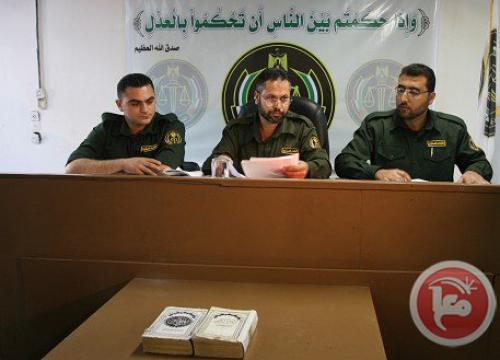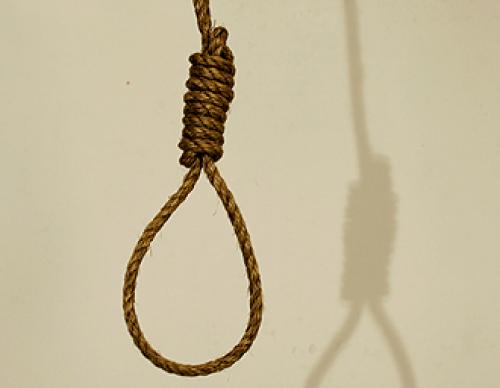situation:On 29 November 2012, the General Assembly voted to grant Palestine non-Member Observer State status at the United Nations. The Resolution on the status of Palestine in the UN was adopted by a vote of 138 in favour to nine against, and with 41 abstentions.
In Palestinian areas, three types of penal legislation are currently applied.
In the West Bank the Jordanian Penal Code No. 16 (1960) is enforced, which provides for the death penalty in cases of high treason and murder.
The Gaza Strip is under Egyptian Law No. 74 (1936) that imposes the death penalty for the disturbance of internal order.
There is also the Palestinian Authority (PA) law that is fairly flexible concerning capital punishment.
Normally, executions are carried out by hanging in cases of civilians condemned to death and by firing squad for police and military personnel receiving a death sentence. However, this general rule is not always respected. Those guilty of treason are also condemned on the basis of Article 131/A of the Palestinian Revolutionary Penal Code of 1979, and according to Military Penal Code no. 4 (2008). It is worth noting that the Revolutionary Penal Code of Palestine Liberation Organization is unconstitutional in the PNA, as it has not been presented to nor approved by the legislature. In addition, the Military Penal Code no. 4 (2008) was issued in the context of ongoing political fragmentation that prevents the legitimate operation of the Palestinian Legislative Council (PLC), whose meetings are held by members of the Change and Reform Bloc (Hamas), with other Parliamentary Blocs and PLC members refusing to participate.
Article 327 of the Palestinian National Authority Criminal Procedure Law (#3 2001) requires the submission of an appeal in all cases in which the death penalty or a life prison term has been handed down. The appeal must be submitted to the appeals court in Gaza city within 15 days of the decision. If the appeal is rejected, the death sentence must then be ratified by the President of the Palestinian Authority in order for it to be implemented.
On 27 March 2014, Faraj Al Ghoul, the head of the Legal Department at the Palestinian Legislative Council in Gaza, recently announced that the Palestinian parliament in Gaza will impose a new punitive law to replace Law No 74 (1936). The senior Hamas official told Gulf News that the Gaza Strip and Palestine in general need a new punitive law to replace the old and “impractical” one. He said that the spread of crime was the reason the new punitive law “which is inspired by” Sharia had been drafted. The law stipulates a minimum of 20 lashes for a minor offense, with the number of lashes increasing with the seriousness of the offense. A minimum of 80 lashes is to be imposed in criminal cases. The law also widens the use of the death penalty as per Sharia.
Articles No 289, and 290 of the proposed law stipulate the cutting off of the hand of a thief and a minimum of seven years in jail in case the criminal repeats his crime. Hamas’ move was condemned by Palestinian factions. The Popular Front for Liberation of Palestine (PFLP), along with several other Palestinian factions, labelled the move as an attempt to impose Hamas’conservative agenda on the whole of Palestinian society. “Penalties like lashing are not compatible with Palestinian society, which is a multicultural society,” the PFLP statement said.
In 2006, the PNA held its first national elections in which Hamas participated. It won a surprise victory, claiming 76 of the 132 parliamentary seats. Immediately after the victory, Hamas spokesman Hamed Bitawi declared: “The Quran is our constitution, Muhammad is our prophet,jihad is our path, and dying as martyrs for the sake of Allah is our biggest wish.” His statement was answered with a standing ovation and calls of “Allahu Akbar.”
Then, in a coup in June 2007, Hamas took over the Gaza Strip, ousting its rival party Fatah and assassinating Fatah loyalists. Since then, in the Gaza Strip, the influence of radical Islam on the daily lives of the population has continually increased.
Regardless of any legal basis, Islamic codes of behaviour are imposed on the population by the iron-fisted control of Hamas through its strategic control of schools, mosques, social welfare structures and the media, which have all had a decisive impact on current life in the Gaza Strip. The imposition of such codes in daily life is enforced by the internal security forces of Hamas, which operate like a sort of “moral police” similar to those found in Iran, Saudi Arabia and in Afghanistan at the time of the Taliban, making sure, for example, that women on the streets or at the beach are dressed appropriately.
In the Gaza Strip, Hamas has created an independent legal system, with the Gaza High Court of Justice no longer under the authority of the Palestinian National Authority. As a result, the legal requirement that the President of the Palestinian Authority sign all death sentences is not applied in the Gaza Strip.
On 30 November 2009, the Hamas-run government ruling Gaza approved a legal change that allows for the execution of convicted drug dealers.
On 19 September 2010, the PNA reaffirmed the death penalty for any Palestinian found guilty of selling land to Israelis.
Since the Palestinian Authority (PNA) was instituted in 1994, as of 30 June 2016, 35 Palestinians have been ‘legally’ executed, including 10 people executed on charges of collaboration with Israel. Two of these executions were carried out in the West Bank, the last of which was in 2002, and 30 in the Gaza Strip. Since 2006, the Hamas-led Government in Gaza has implemented 19 death sentences including 10 sentences for collaboration with foreign bodies and 9 for murder.
The PNA carried out its first execution on 30 August 1998. Two brothers, Raed and Muhammad Abu Sultan, members of the Palestinian military intelligence, were executed by firing squad in Gaza City after receiving a summary and unfair trial before a special military court, only three days after they were charged with committing two killings.
On 12 June 2005, the PNA resumed executions after three years. Four men, all convicted of murder, were executed in Gaza City, three by hanging and one by firing squad. Ten days after the executions and following international criticism, on 22 June 2005, Mahmoud Abbas asked his justice minister to annul court verdicts against dozens of Palestinians, including some convicted of collaborating with Israel. However, another execution – the fifth of 2005 – took place on 27 July, when Raed al-Mughrabi was put to death for murder at the prison in Gaza City.
As far as the preceding years are concerned, in 2002, three people were shot to death, all for murder; in 2003, four people were condemned to death, but no executions were carried out; in 2004, for the second year running, no executions were carried out in Palestine.
In 2010, the Hamas Government in Gaza resumed executions after a de facto moratorium that had lasted five years: on 15 April, two Palestinians were executed by firing squad, after being convicted by a military court of collaborating with Israel; another three men convicted of murder were hanged on May 18. It was the first time that Hamas carried out formal executions since the Islamist group seized control of the Gaza Strip in 2007 from the rival Fatah party of President Mahmoud Abbas, who governs in the West Bank.
In 2011, Gaza’s Hamas rulers executed three Palestinians convicted of collaboration with Israel.
Executions on the Gaza Strip continued in 2012, and were at least six. On April 11, the European Union condemned the first three executions and urged the Hamas-led government to “comply with the de facto moratorium on executions put in place by the Palestinian Authority”. On July 19, after other three executions, the European Union Missions in Jerusalem and Ramallah reiterated the EU's opposition "under all circumstances" to the use of capital punishment and urged the authorities in Gaza to refrain from carrying out any executions of prisoners.
Between 16 and 20 November 2012, after Israel launched its latest assault on Gaza called “Pillar of Cloud”, the military wing of the Hamas government brutally and publicly executed seven Palestinians who were accused of spying for Israel.
Executions on the Gaza Strip continued in 2013 (at least 3) and 2014 (at least 2).No execution was carried out in Palestine in 2015, but executions in Gaza resumed in 2016 and were 3, including 1 carried out by hanging.
In 2016, at least 21 new death sentences were handed down in the Gaza Strip, including 13 for collaboration with Israel (12 have been issued by the militray courts according the
Palestinian Center for Human Rights). In 2015, death sentences were 11, 9 in Gaza and 2 in the West Bank. At least 21 people were under sentence of death at the end of the year.











